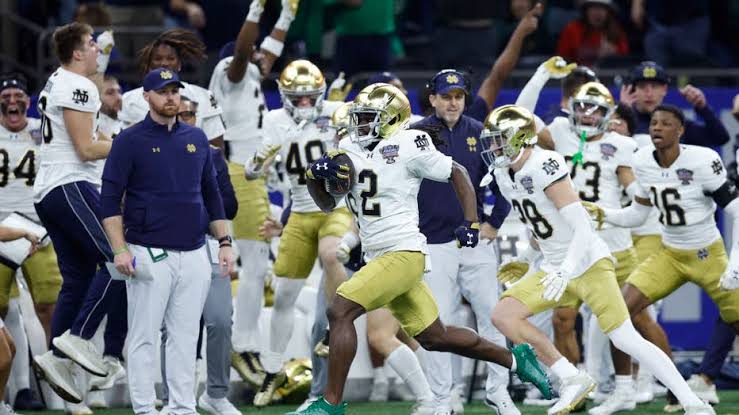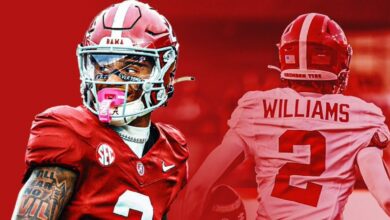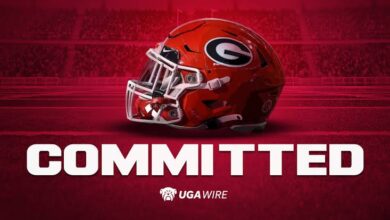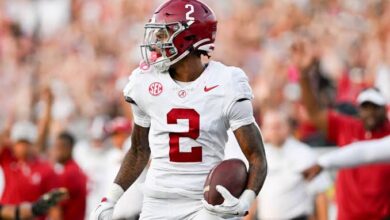Notre Dame’s Transfer Revolution: Irish Knock Georgia Out of CFP, Redefining College Football

In a seismic College Football Playoff (CFP) clash, Notre Dame stunned Georgia to advance to the national championship, fueled by a roster bolstered with high-impact transfers. The Irish’s upset win has not only derailed Georgia’s championship ambitions but also reignited debate about the transfer portal and its transformative influence on the sport.
A Transfer-Driven Triumph
Notre Dame’s success this season is undeniably tied to its aggressive use of the transfer portal. Head coach Marcus Freeman’s willingness to integrate experienced players into key positions has paid dividends, with several transfers playing pivotal roles in the victory over Georgia.
From a star quarterback poached from a rival Power Five school to defensive standouts who anchored the Irish against Georgia’s high-powered offense, the game highlighted how transfer acquisitions can shape a program’s fortunes.
“This isn’t the same Notre Dame we’ve seen in the past,” said one analyst. “Their willingness to embrace the transfer portal has taken them from good to elite in record time.”
Georgia: A Victim of Tradition?
For Georgia, the loss was as much a shock as it was a wake-up call. The Bulldogs, under head coach Kirby Smart, have historically relied on elite high school recruiting to build their roster. While this strategy has yielded significant success, their hesitance to aggressively use the transfer portal may have left them vulnerable to teams like Notre Dame, who have adapted to the new college football landscape.
“Notre Dame exploited the system to its fullest potential,” said a former SEC coach. “Georgia, for all its talent, didn’t have the same depth of experience that transfers can bring. That made the difference in this game.”
A Divisive Strategy
While Notre Dame’s win has been celebrated by Irish fans, it has also sparked criticism and controversy across the college football world. Opponents of the transfer portal argue that it undermines the traditional model of player development, turning college football into a “free agency” market where loyalty to programs is secondary to individual opportunity.
“This isn’t college football anymore,” one Georgia fan tweeted. “It’s just a game of who can buy the best team through the portal. This isn’t what the sport was meant to be.”
Others, however, see Notre Dame’s strategy as a necessary evolution. “The transfer portal is a tool, and Notre Dame used it better than anyone else this year,” said a college football analyst. “Georgia lost because they didn’t adapt. It’s as simple as that.”
What’s Next for College Football?
Notre Dame’s victory raises broader questions about the future of college football. Is the transfer portal the great equalizer that allows historically dominant programs like Georgia to face new challenges? Or does it widen the gap between programs that can attract top talent through NIL deals and those that cannot compete financially?
For now, Notre Dame’s success serves as both a blueprint and a warning. Programs unwilling to embrace the new reality risk being left behind, while those willing to adapt may find themselves on the sport’s biggest stage.
Notre Dame’s Moment
As the Irish prepare for the national championship, their win over Georgia will be remembered as a defining moment in a rapidly changing sport. Whether fans and critics like it or not, Notre Dame has proven that the transfer portal isn’t just a shortcut—it’s a game-changer.
For Georgia, the loss will undoubtedly fuel introspection and calls for change. For Notre Dame, it’s validation that in modern college football, adaptation isn’t optional; it’s essential. And for the rest of the sport, it’s a clear message: evolve or be left behind.









